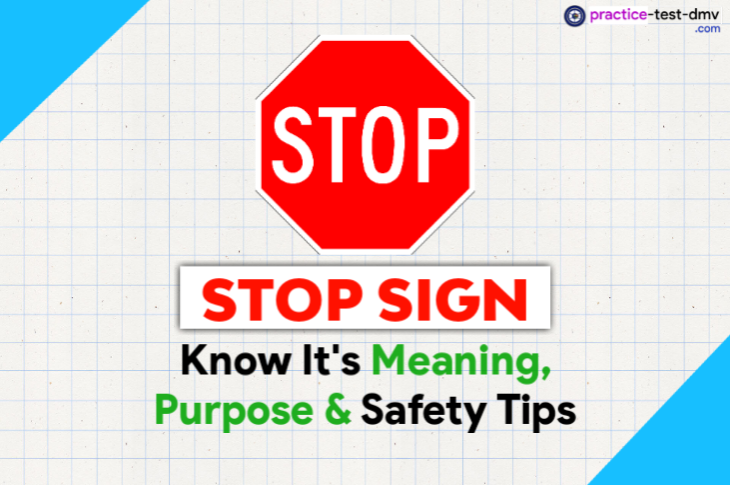Introduction
When you're behind the wheel, encountering a red and white octagonal sign is a clear command: STOP. In this article, we'll delve into the significance of STOP signs, their distinctive features, and the essential steps to follow when you encounter one at an intersection.
STOP Sign: Unveiling Its Meaning and Purpose
Shape and Color
The iconic STOP sign is instantly recognizable due to its unique octagonal shape and bold red and white colouring. Its standout appearance serves a crucial purpose – ensuring drivers quickly register its presence and respond accordingly.
Regulatory Sign Functionality
As a regulatory sign, the STOP sign holds a special role in controlling traffic. Unlike other road signs that provide information or guidance, regulatory signs such as STOP signs command specific actions from drivers, imposing limits and ensuring safety.
STOP Sign Etiquette: Knowing What to Do
Compliance at Intersections
At intersections lacking traffic lights, the STOP sign takes center stage. Its presence indicates the necessity for a complete halt, regardless of the absence of oncoming vehicles. This practice ensures the orderly flow of traffic and minimizes potential accidents.
Cautious Approach
Upon reaching a STOP sign, it's imperative to bring your vehicle to a full stop, either at the designated stop line or before the crosswalk. In cases where these markings are absent, a halt before entering the intersection is mandatory.
Clearing the Way
Before resuming your journey, exercise patience and ensure that the intersection is devoid of any approaching vehicles or pedestrians. This extra step guarantees a safe continuation and prevents potential collisions.
Recognizing STOP Signs: A Distinctive Safety Measure
Unmistakable Characteristics
The octagonal shape of the STOP sign serves a twofold purpose – not only does it draw immediate attention, but it also prevents confusion with other traffic signs. Its bold red hue against a white background further enhances visibility.
Preventing Misinterpretation
The octagonal shape proves beneficial even for drivers approaching from the opposite direction. This prevents confusion, as it's easily identifiable from both angles, distinguishing it from other road signs and ensuring everyone adheres to its command.
Conclusion
STOP signs are more than just road markers; they're crucial tools in maintaining traffic order and preventing accidents. Understanding their significance and adhering to their instructions ensures safer intersections and a more secure journey for all road users. So, the next time you encounter a red and white octagon, remember to bring your vehicle to a complete stop, check the surroundings, and proceed only when the coast is clear. Your diligence contributes to a safer road experience for everyone.


